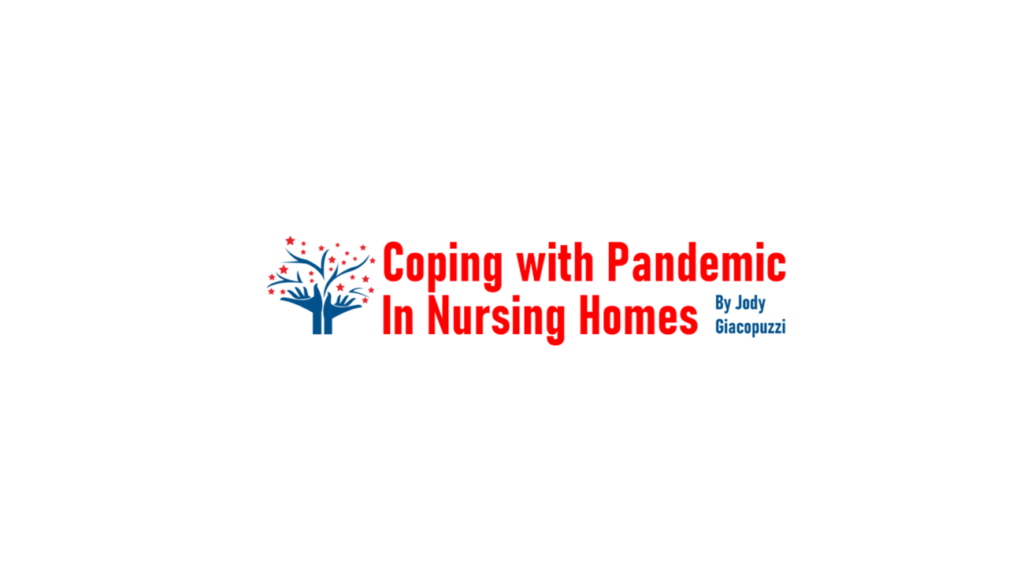
Coping with Pandemic in Nursing Homes – Part 3
We are now at week six of shelter-in-place orders. The crisis is no longer new and the end has no date. On a good day, outside the nursing home, others are experiencing Zoom fatigue and cabin fever. For health workers and staff, fatigue in the face of adversity is deeper and more critical.
In normal times, up to 40% of healthcare professionals suffer from burnout. In areas of the world hard hit by the pandemic, half of health workers are suffering mental health problems, such as stress, trauma, anxiety and burnout. Tragically, this week one of our top E.R. doctors, Dr. Lorna M. Breen, who had been hospitalized and treated for exhaustion from her work at a Manhattan hospital hit hard by the coronavirus outbreak, took her own life. “She tried to do her job, and it killed her” said her physician father.
PsychoSocial Consultants is here to provide support and continual information on coping and caring for those we serve and our staff. As this pandemic continues, our goal is to provide you with tools to address the ever-changing psychosocial issues that arise. In this third issue of Coping with Pandemic in Nursing Homes, we look at creating compassion resilience to recover and continue on in the face of adversity without being overwhelmed.
COMPASSION RESILIENCE
Resilience in the healthcare field is a relatively recent area of investigation that provides a way of understanding what enables healthcare providers to persist in the face of challenges and offers a complementary perspective to studies of stress, burnout and attrition. Compassion is the combination of the consciousness of others’ distress and a desire to alleviate it, and is a basic quality needed to be able to meet our residents’ needs. Compassion resilience is the ability to maintain our physical, emotional and mental well-being while responding compassionately to people who are suffering.
This resilience is a reservoir of well-being that we can draw upon on difficult days and in difficult situations. It is a dynamic process or outcome that is the result of interaction over time between a person and their environment. Resilience enables healthcare providers to have longer, more satisfying careers, and has been shown to increase quality of care while reducing errors, burnout and attrition. Here is more about compassion fatigue and building resilience from the federal Substance Abuse and Mental Health Services Administration’s guidance for disaster responders.
COMPASSION FATIGUE
The reality of working in the healthcare field is that it is both exhilarating and stressful. Care for yourself in the face of difficult work sometimes seems to be last on our lists. Our work can be overwhelming. Our challenge is to maintain our resilience so that we can keep doing the work with care, energy and compassion.
BUILDING COMPASSION RESILIENCE
• Exercise self-compassion: Almost everyone impacted by an emergency will experience psychological distress.
• Front-line caregivers may experience excessive stress or other mental health impacts during this time. This is not a sign of weakness.
• It is easy to play up the importance of self-care to our residents while downplaying it to ourselves. Resist that urge. Give yourself permission to schedule even a few moments for self-care each day.
• Help is available: If symptoms you are experiencing impact your ability to provide care to your residents and your family in the same way you did before the pandemic, reach out for help.
• Create ongoing supportive connections with your colleagues to help validate and normalize your experiences.
• Connect with your purpose: Acknowledge the crucial and noble work you are doing.
Connecting with your purpose builds compassion satisfaction and can be a source of hope, strength, and ultimately resilience. It is the quiet knowledge that what you do makes a difference. Even when things do not go as well as you had hoped, you can try to appreciate these encounters, knowing that you took action and extended yourself to others.
In these ways, compassion satisfaction can serve as a natural, protective tool against the negative aspects of disaster response work. By noticing, acknowledging and appreciating the work you do, you can build resilience in yourself and encourage it in your colleagues.
Compassion resilience is one of the services our consultants can provide for you: when help is needed, for regular staff support and for resilience training. Training includes skills to manage expectations, set professional and personal boundaries, build effective co-worker relationships, practice real-time and ongoing self care, identify critical warning signs of excessive stress and determine a course of action.
Thank you for all you are doing to care for others. To support your timely needs cost-effectively, our traditional onsite Social Work Consulting services are now available virtually in 20 to 60-minute increments. We are here to help.



